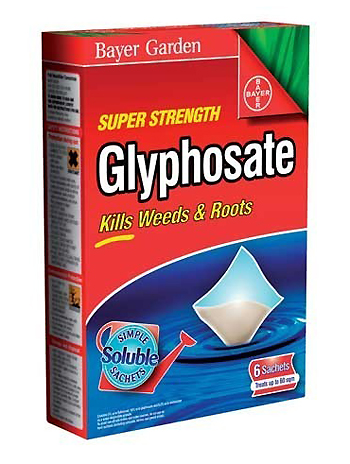The African Centre for Biosafety (ACB) has today released its new study titled, “How much glyphosate is on your dinner plate? SA’s food safety compromised by lack of testing.” This study highlights numerous risks posed by the herbicide glyphosate to human and animal health as well as worrying regulatory failures, particularly in relation to the monitoring, inspection and testing of food for glyphosate residues.

South Africans consume glyphosate ridden food on a daily basis: currently, 77% of maize grown in South Africa is genetically modified (GM) and of this 54% (about 1 million hectares) is modified to be glyphosate tolerant. Soya products on our market suffer the same fate: all of the GM soya planted in South Africa is tolerant to glyphosate, planted on 480 000 ha. South Africa also imports bulk shipments of GM grain from countries growing herbicide tolerant crops.
According to Mariam Mayet, Director of the ACB, “the ACB was desirous of testing food samples for glyphosate residues. In the course of trying to get these samples tested, the ACB learnt that while there are numerous private testing laboratories throughout South Africa, nine of which are ISO 17025ii accredited, none were able to test for glyphosate residues in our samples of maize and soya products. Testing could only be achieved if the samples were sent abroad, at considerable expense.”
The main findings of the study include:
- Numerous peer reviewed studies on glyphosate exist, documenting the health risks posed to to animal and human health;
- There is a complete lack of testing for glyphosate residues in local market produce. The private sector relies on independent laboratories for monitoring, but none of these currently are able to test for glyphosate. Local government health authorities are responsible for the inspection and monitoring of imported foodstuffs in terms of the National Health Act. However, municipalities suffer from severe capacity constraints and do not undertake any testing for exceedance of the Maximum Residue Limit (MRL).
- Information from the Department of Agriculture, Forestry and Fisheries (DAFF) with regard to the registration, re-registration and review of glyphosate is veiled in secrecy.
- Failure by government to reform current legislation regulating glyphosate, and all pesticides for that matter, despite government itself acknowledging such legislation to be hopelessly outdated and unconstitutional.
According to Mayet, “A moratorium should be placed on the further use of glyphosate until such time that capacity exists in South Africa to monitor and test for residues in locally produced and imported food.”
The ACB calls on government to make the following information available to the public:
- Data on glyphosate residues in food, water, and soil as a result of the introduction of glyphosate resistant GM crops;
- Details of its surveillance of glyphosate in food, agricultural and natural systems;
- What support it is giving to South African labs to establish the requisite capacity to monitor MRLs in our food; and
- What progress has been made since the publication of the Pesticide Management Policy with regard to legal reform.
ACB’s Study titled “How much glyphosate is on your dinner plate? SA’s food safety compromised by lack of testing” can be downloaded from its website.
i Glyphosate is the ‘active ingredient’ in numerous chemically based herbicides that are used in diverse situations including in food production, timber plantations, sports fields and home gardens.
ii ISO 17025 is the recognised international standard for competence of testing and calibration laboratories. Download the ACB study for further explanation.














